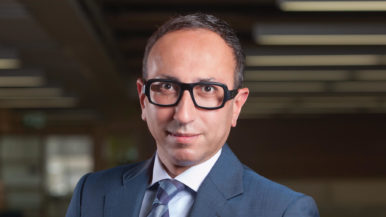The post-pandemic future: Grocery delivery will save the planet

Ran Goel is CEO of Fresh City Farms
Online grocery was born in the late 1990s. In spite of billions in venture capital pumped into the sector, the concept never took off. In 2011, I started an organic urban farm called Fresh City. On two acres at Downsview Park, we grew salad greens, herbs, tomatoes, eggplants and lots of zucchini. We sold our produce online out of necessity. The best farmers’ markets all had long wait-lists for new vendors, and selling wholesale wasn’t viable. I would do delivery runs and then nurse the splinters from the wooden wine crates we used. We embodied what online grocery was back in 2011: a niche affair. Most people simply did not trust strangers with their fresh food.
Then came coronavirus—and a fast-forward button for online grocery. Ten years of market penetration happened in a few weeks as people isolated at home. We saw a fourfold jump in demand at Fresh City, with 11,000 names on our wait-list. The pandemic mainstreamed online grocery shopping forever. That is a good thing.
For a century, grocers have been foisting work on shoppers. They’ve made us drive farther, traverse huge parking lots, navigate giant stores, stand in line, grapple with self checkout, bag our own food—all this in the name of offering more products that profit huge corporations at the expense of our health and planet. Getting groceries to your door will be a nice change, and not just because it’s a time saver.
First off, grocers and suppliers will be forced into a race to peak transparency. Liberated from the limited real estate of a package, the online channel lends itself to richer product information. Consumers in turn expect more. You will learn more about nutrition, ingredients, animal welfare and labour standards, all as you shop. Grocers who are transparent about where and how their products are made will win loyalty.

Online grocery will also become more accessible. Research shows that those earning over $100,000 (U.S.) are more likely than the average person to buy groceries online. We can make things cheaper by using robots to pack orders and streamlining efficiency with dense delivery routes. With government support, we can provide a more dignified and efficient way to distribute to Torontonians dealing with food insecurity and mobility challenges. A Yale study found that 93 per cent of urban areas with limited access to affordable and nutritious food were already within a grocery delivery zone.
Best of all, the planet will win big. Online grocers can deliver in reusable crates and package food in reusable containers. We already reuse beer bottles, milk bottles and propane cylinders, so why not think bigger? Reusables can easily be picked up when a new order is dropped off. Grocery delivery can also cut transport-related greenhouse gas emissions by up to three quarters. A van can deliver two weeks’ worth of groceries to 60 households on one route—much better than all those people driving their 4,000-pound SUVs to the store to pick up a carton of milk and some produce.
Ironically, the brick-and-mortar experience will continue to thrive amid this growth. Grocers who have historically competed just on price or location will atrophy, but ultra-convenience will win. Expect smaller stores around the corner, like Fresh City’s Ossington store, which, at 1,800 square feet, is 20 times smaller than the average supermarket. And expect to see elevated, beautiful shopping experiences, like Eataly’s in-store pasta production and restaurants, or the live seafood extravaganza at the Chinese grocer Hema.
What will this all mean for front-line workers? They are being wronged, online or not. And the market will not resolve this sad reality by itself. Governments need to support higher wages, paid sick pay and basic dignity for migrant workers. Prospects for change are brighter than ever, but the status quo is a stubborn thing.
I knew something fundamental had changed for online grocery when I got a call from my mom in late March. In the decade since I started Fresh City, my mom had never bought our produce. Like any self-respecting member of her generation, she always believed produce selection was not something you entrusted to others, not even your son. And yet she said: “Nu, do you guys deliver to Thornhill?”

































